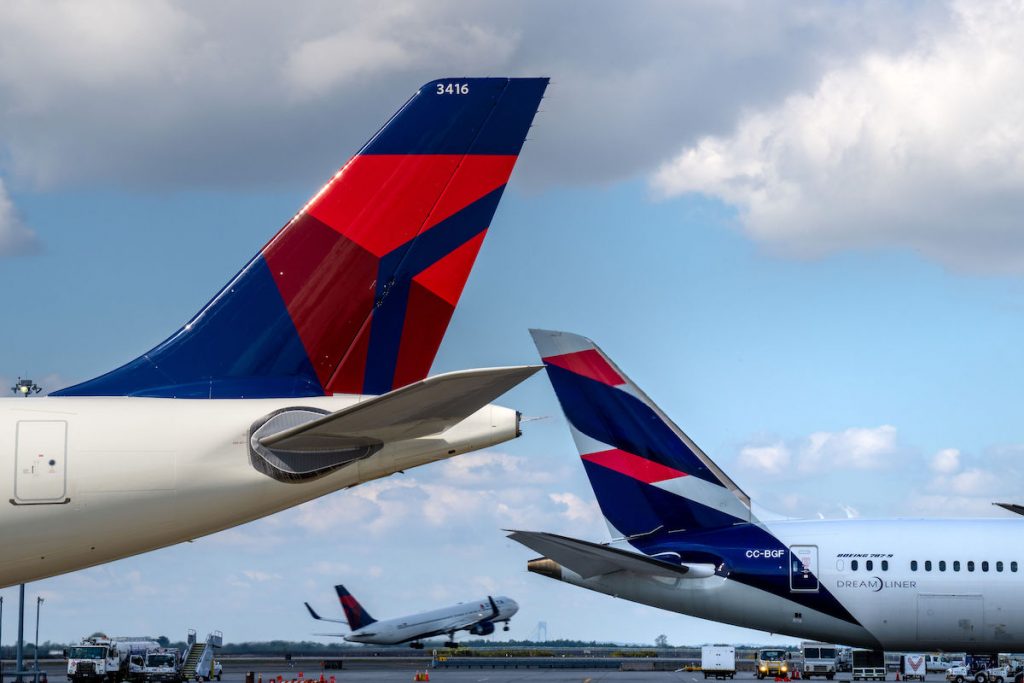
Skift Take
Today’s podcast looks at Delta’s big first quarter, Brazil’s delayed visa requirements, and the factors behind corporate travel agency mergers.
Listen Now
🎧 Subscribe
Apple Podcasts | Spotify | Overcast | Google Podcasts | Amazon Podcasts
Episode Notes
Delta Air Lines posted a first-quarter profit in what’s normally a sluggish period for airlines — in part due to a rebound in business travel, writes Airlines Reporter Meghna Maharishi.
Delta President Glen Hauenstein said during the company’s earnings call that corporate travel sales were up 14% from last year. He added the technology, customer services and financial services industries led the increase. In addition, Delta saw record revenues for domestic travel during the first quarter.
The company recorded a $37 million first-quarter profit — in contrast to a $363 million loss during the same period last year.
Next, Brazil has postponed reinstating its visa requirement for visitors from Australia, Canada and the U.S. until 2025, writes Global Tourism Reporter Dawit Habtemariam.
President Luiz Inácio Lula da Silva signed a decree this week that included the postponement. This is the second time Brazilian authorities have postponed the visa requirement, which was originally set to be implemented in January. Citizens of the three countries have been allowed to visit Brazil without a visa since 2019.
Finally, the travel industry has seen a wave of corporate travel agency mergers and acquisitions recently. Contributor Justin Bachman notes two key factors contributing to the trend.
Bachman reports that travel suppliers — especially airlines — are looking to improve their distribution channels and obtain more capital for investments in tech. Amex GBT CEO Paul Abbott said suppliers want their distribution channels to deliver a modern retailing experience.
Meanwhile, Mike McCormick, former head of the Global Business Travel Association, said the largest corporate travel agencies firms have been forced to invest heavily in technology due to pressure from airlines. Airlines are moving more of their fares from the traditional global distribution system model to a direct New Distribution Capability platform.
